Turkey Offers Diverse Study Programs With Globally Recognized Academic Excellence
Turkey has become a top choice for students seeking high-quality education combined with cultural richness and vibrant experiences. With globally recognized academic standards and a wide range of study programs, the country provides opportunities for learners to excel in both knowledge and personal growth.
A Variety of Study Programs
Students in Turkey can explore programs tailored to a variety of interests and career paths. The diversity of study options ensures that every learner finds a path that suits their aspirations. Key highlights include:
- Comprehensive disciplines: From sciences and technology to arts, humanities, and social sciences, students have access to a wide array of subjects.
- Flexible learning formats: Options include theoretical studies, practical training, and research-oriented programs.
- Skill-based education: Emphasis on critical thinking, problem-solving, and creativity equips students for global challenges.
This variety allows learners to pursue academic excellence while discovering their passions.
Globally Recognized Academic Standards
Turkey’s commitment to quality education ensures that its programs meet international standards. High-quality English-taught programs attract many who wish to study in turkey for pakistani students without facing language barriers. Students benefit from:
- Innovative teaching methods: Modern classrooms, interactive learning, and hands-on experiences enhance knowledge retention.
- Global perspective: Programs are designed to prepare students for international careers and collaborative opportunities.
- Academic rigor: High standards encourage students to achieve excellence while developing independence and confidence.
This combination of innovation and quality prepares learners for success on a global scale.
Enriching Cultural Experiences
Studying in Turkey goes beyond academics. Its unique position between continents provides a dynamic cultural experience that complements learning. Students can enjoy:
- Historic landmarks and traditions: Explore ancient sites, traditional markets, and local customs.
- Vibrant arts and music scene: Engage with festivals, exhibitions, and performances to expand creative horizons.
- Diverse culinary culture: Experience the flavors of the country through regional specialties and traditional cuisine.
These immersive experiences enhance personal growth and broaden students’ worldviews.
Supportive and Welcoming Environment
Turkey’s friendly communities and safe environments make it an ideal destination for learners from all over the world. Advantages include:
- Inclusive social environment: Locals are welcoming and eager to share their culture with students.
- Accessible cities and regions: Both urban and rural areas are easy to navigate and full of opportunities for exploration.
- Active student life: Cultural events, clubs, and workshops encourage engagement beyond the classroom.
A supportive environment ensures students can thrive academically and socially while feeling at home.
Bridging Education With Global Opportunities
Studying in Turkey combines academic learning with experiences that foster global readiness. Opportunities include:
- International exposure: Collaborating with peers from diverse backgrounds builds cross-cultural skills.
- Practical experiences: Hands-on projects and real-world learning prepare students for professional success.
- Inspirational surroundings: Rich history, natural landscapes, and cultural vibrancy inspire creativity and innovation.
This holistic approach ensures students grow intellectually, socially, and personally.
Conclusion
Turkey offers diverse study programs backed by globally recognized academic excellence, making it an ideal destination for students eager to succeed. By combining rigorous education with cultural exploration and personal development, the country provides a transformative experience that prepares learners for a bright future.


